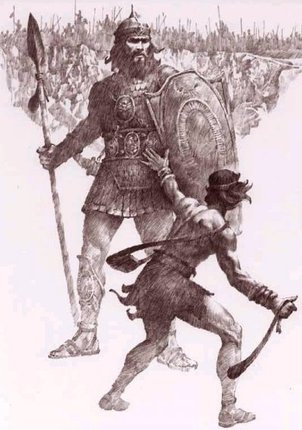David the King: The Escape of David
Biblical texts more often than not move quickly. Whole generations are glossed over with little mention beyond names, entire lives rendered irrelevant to the story. So, when any text of the Torah slows down, the implication is that these moments are of incredible importance. Chapters 19 and 20 of First Samuel concentrate on individual scenes and the details of complex conversations, lingering on social nuance and plot points like few scriptural texts ever do. It's clear in these chapters that we're not just reading a moral document, we're consuming entertainment.



